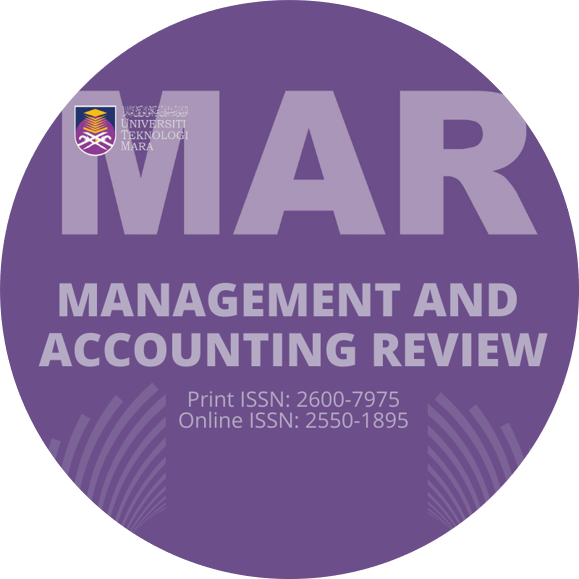Volume 17 No. 2, August 2018
ARTICLE INFO
Article History:
Received: 19 April 2018
Accepted: 27 June 2018
Available online: 29 August 2018
MANAGEMENT AND ACCOUNTING REVIEW, VOLUME 17 NO 2, AUG 2018
English Language Self-Efficacy in a Blending Learning Environment
Suthagar Narasumana and Zalina Mohd Zamrib
aFaculty of Education, Universiti Teknologi MARA
bKolej Poly-Tech MARA Ipoh, Malaysia
ABSTRACT
aFaculty of Education, Universiti Teknologi MARA
bKolej Poly-Tech MARA Ipoh, Malaysia
ABSTRACT
The aim of this study was to look at the effect of blended learning (BL) on the respondents’ English as a second language (ESL) self-efficacy. The respondents in this study were subjected to a pre and post study survey on ESL self-efficacy in a BL environment. Between the surveys was an eight week period during which the respondents’ formal ESL lessons were conducted using the blended learning approach. The study utilised both quantitative and qualitative data. Data from the pre and post-test surveys were analysed to ascertain the respondents’ attitude towards blended learning and their self-efficacy in ESL. The results of this study revealed that blended learning had a positive influence on the diploma level respondents’ self-efficacy in ESL learning. They believe that blended learning had helped improve their listening skills (74.4%), speaking skills (68.3%), reading skills (92.7%), writing skills (56.1%) and grammar (59.8%).
Keywords: English language; self-efficacy
Keywords: English language; self-efficacy





